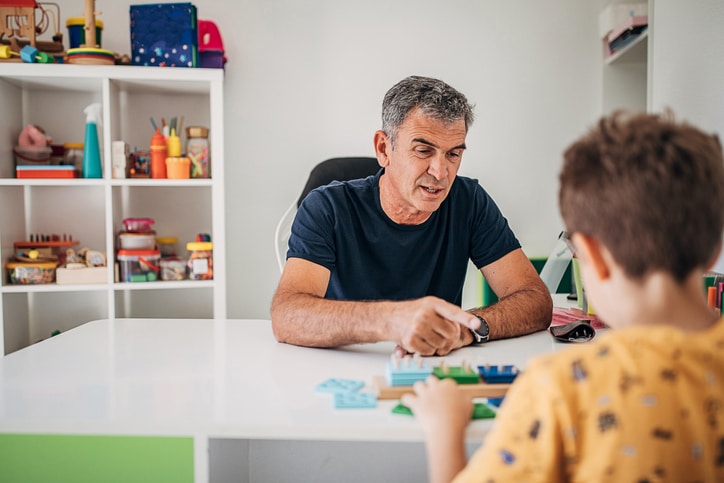Speech Delay
Speech delay in children is a common disorder that can cause frustration for both kids and parents. While most children will eventually catch up to their peers, speech delays can persist into adulthood if not treated early. There are many different reasons why a child may have a speech delay, such as childhood developmental disabilities, but the good news is that there are effective treatments available to help them overcome these difficulties.
Get Treatment Now

What is a Pediatric Speech Delay?
A language delay in children is a condition where a child has difficulty learning and using language skills. This can include problems with speech sounds, words, and sentences. A speech delay can also involve trouble understanding what other people say.
Different Types of Speech Delays
Not all children display the same speech delay symptoms, as there are different types. There are three main types of speech delays that may appear in children. These include:
- Receptive language delay: A child may have trouble following directions, answering questions, or understanding conversations due to trouble understanding speech.
- Expressive language delay: This is when a child has trouble using speech. This causes trouble with saying words, stringing together sentences, or asking questions.
- Mixed receptive-expressive language delay: A child may have problems with both receptive and expressive language skills.
What are the Causes of Speech Delay?
There are many possible causes of speech delays in children. Some children may have a physical condition that makes it difficult to produce speech sounds, while others may have difficulty understanding language. Many children with speech delays have a combination of both factors.
In some cases, the cause of pediatric speech delay is unknown. However, there are risk factors that may increase the likelihood of a child developing a speech delay, including:
- Family history: If speech delays are common in your family, your child may be at a higher risk for developing a speech delay.
- Premature birth: Children who are born prematurely may be more likely to have speech delays.
- Medical conditions: Certain medical conditions, such as hearing loss, cleft palate, or cerebral palsy, can cause speech delays.
- Developmental disabilities: Children with developmental disabilities, such as autism or Down syndrome, may be more likely to have speech delays.
Early Signs of Speech Delay
The early signs of speech delay vary depending on the age of the child. By 6 months, your child should be able to make cooing sounds. By 12 months, your child should be babbling. By 18 months, your child should be saying at least one word. By 2 years, your child should be saying two-word phrases. If your child is not meeting these milestones, he or she may have a speech delay.
How is a Pediatric Speech Delay Diagnosed?
A speech-language pathologist will assess your child’s speech and language skills. He or she will also ask about your child’s development, medical history, and family history. The speech-language pathologist may also perform a hearing test to rule out hearing loss as a cause of the speech delay.

Pediatric Speech Delay Treatment
The treatment for speech delay depends on the underlying cause. If your child has a physical condition that is causing speech difficulties, such as a cleft palate, treatment may involve surgery. If your child has difficulty understanding speech, he or she may benefit from speech therapy.
Many children with speech delays improve with pediatric speech therapy. Speech therapy involves working with a speech-language pathologist to improve speech and language skills. It can help children learn how to produce speech sounds correctly and fluently. It can also help children improve their receptive and expressive language skills.
How Circle of Care Can Help Your Child’s Speech Delay
If you are wondering if your child has a speech delay, Circle of Care can help. We offer diagnostic and pediatric speech therapy services to children with speech delays. Contact us today to learn more about our speech therapy services and schedule a consultation.
